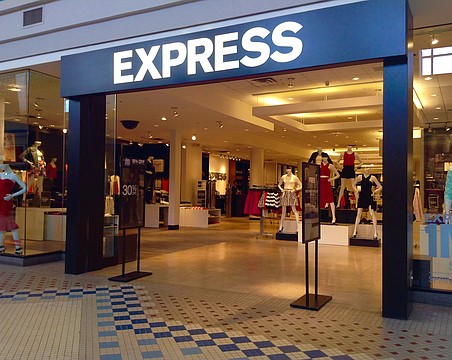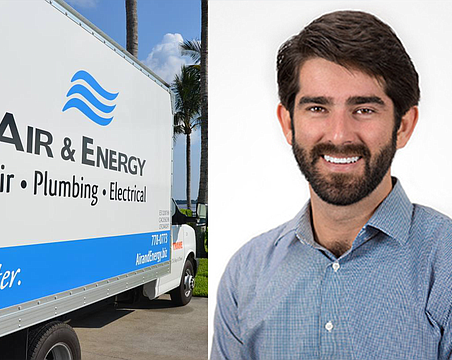Recovery Begins
Business owners deal with chaos as they pick up the pieces after Hurricane Charley.
By Sean Roth
Real Estate Editor
At 7 a.m. on a Saturday, Mike Blue got a phone call from one of his customers; Blue and his partners owned an office/warehouse building in the Charlotte Harbor area. The customer had bad news: Hurricane Charley had picked up the 5,000-square-foot building and dropped it on top of a neighboring business.
"There was nothing left," says Blue, a partner in Tampa-based Florida Water Products, a wholesaler of pool supplies.
It was time for Blue and his partners to make some big decisions: Was everyone safe? Do we rebuild? How do we pay employees?
They were not alone.
The Florida Division of Emergency Management estimates that Hurricane Charley, a Category 4 storm, caused as much as $14 billion damage. The Insurance Information Institute estimates that less than 5% of the businesses in Charley's path suffered losses. But thousands were left homeless and hundreds of businesses were damaged or destroyed.
The universal question after a disastrous event like this: What do I do?
Robert Scully faced that question 12 years ago when Hurricane Andrew destroyed his large flora nursery business in Dade County.
"Our business was about 50 years old at the time," Scully says. "I remember thinking how am I going to clean up this mess? The buildings were along about 20 acres. Most of these were glass buildings. They had been twisted. It was really all in shambles."
Andrew threw equipment, plants and a delivery truck miles away from his business, he says.
Within two to three days, Scully's business received its first insurance reimbursement. All of its losses were paid within a month.
"Thankfully we didn't need insurance money to pay the staff," Scully says, explaining the company used its savings.
Because the business was in a wooded area, the police and National Guard blocked the road to stop looters.
"Overall I felt a lot of the same emotions the people to the south of us must be feeling," Scully says. "It was a very emotional experience. You have to make very serious decisions for your future in a very short amount of time. At the same time, you are in grief for your personal and business losses."
Scully's experience with Andrew ended his nursery business.
"I had business partners," Scully says. "We discussed this over several weeks. We made a decision to take the insurance money and walk away."
Scully, now a Sarasota consultant for nurseries, primarily in the area of producing orchids, warns business owners they must make a greater capital investment if they want to reopen.
That decision, however, can wait.
"The first thing they need to do is to watch out for their safety," says Tom Kochis, an agent with Sarasota's Atlas Insurance Co.
Business owners should heed the danger inherent in a disaster area. All safety issues, including downed power lines, broken glass and malfunctioning intersection lights, should be considered.
Business owners should check on the health and condition of their employees, for humanitarian and business recovery reasons. Blue learned it's important to have secondary contacts for employees.
Plus, business owners should contact insurance companies as soon as possible after a disaster hits to get the claim started and to put their property in line for the extremely busy adjusters. This may be harder than it sounds when cellular towers and power and telephone lines are all down. In that case, you can either travel out of the area or look for the insurance industry storm troopers - mobile catastrophe adjusters.
Most insurance companies send those adjusters in to help.
"Right now we have four (mobile-claim) vans," says Gary Schleffer, Orlando site director of customer care for St. Paul Travelers. "In most devastated areas we look for a supermarket or a Wal-Mart. Places where a lot of people will gather after the event."
Most insurance companies also use print and radio advertising to promote mobile locations and claim phone numbers.
Even after a business owner files a claim, in the wake of a major disaster such as Charley, property owners can expect to wait three to 10 days before an adjuster will visit them. Adjusters are overwhelmed with claims, and with street signs and landmarks down, they are also likely to have trouble finding their way. Claims are handled on a triage basis; the most damaged properties get attention first.
Diane Brown, commercial manager of HRH of Southwest Florida, says it's important for owners to "try to mitigate future damage to the property." Broken windows should be boarded up. Damaged roofs should be covered with a tarp. And don't forget to keep receipts for all related purchases.
In general, insurance officials say property owners are responsible for their property's cleanup, even if the trash came from elsewhere. However, depending on the policy, the cleanup may be covered.
"It just really speeds things up, if they clean up their own property," Brown says. "No one is truly responsible. This is really an act of god, and we suggest a good neighbor policy."
If a property owner makes temporary repairs, most insurance companies recommend they take photographs before repairs are made. The photos will also assist with claims.
"The biggest part of this is to just begin to catalog your items," says Robert Ludwig, vice president of the Sarasota-based insurance company Ludwig-Walpole Co.
Mitigation also includes protecting the property from looters.
"If the building is exposed, you should remove valuables," says Sue Honeyman, a spokesperson for The Hartford. "Anything you can do to make your property less attractive to looters. We also recommend pulling together your financial papers. The more business records you have, the faster your claim can be resolved."
For the most part, looting is a problem for the local police or National Guard to handle.
When an adjuster contacts the property owner, the response time and amount paid depend largely on the insurance company and the policy. It is possible an adjuster will issue a check for only a portion of the claim up front. In most cases, adjusters are limited in the amount they can issue on site.
Business owners should also consider the sticky issue of paying out-of-work employees and other operating expenses. Insurance companies are not required to pay salaries unless the issue is covered by the policy.
The most common insurance that covers salaries is business interruption insurance. A payout from business interruption insurance can also provide the capital necessary to get a business up and running in a disaster area, such as rent for a temporary site and the cost of an electrical generator.
"Business interruption insurance is based on the revenue of the company," Honeyman says. "It would be best if people would keep copies of their financial records off site."
For government disaster assistance, business owners and others with losses can contact the Federal Emergency Management Agency at (800) 621-FEMA. The agency sets up assistance centers in affected areas to provide help with temporary housing, home repairs, home replacements, permanent homes construction and other personal expresses.
In addition, business owners may qualify for loans of as much as $1.5 million through the U.S. Small Business Administration to repair damage to land, machinery, equipment and/or inventory. Economic Injury Disaster Loans are also available to small businesses unable to pay bills or meet operating expenses. Interest rates are as low 2.9%, with terms up to 30 years. The SBA sets loan amounts and terms according to a borrower's financial condition.
If business owners decide to reopen the business, they should pay close attention to equipment costs and contractor reliability.
"People need to be wary of the people they are using for work being done right now," Ludwig says. "They shouldn't necessarily trust the guy going door-to-door saying, 'Hi, I'm a roofer.' I have seen people charge $2,500 to $3,000 for a $500 job. It's a touchy situation to be in."
Get a quote and then check with the insurance company.
"People can really help by taking an active role in this," Kochis says. "They can go out and ask for an estimate. Most of the time, people have an idea of some of the guys that do this type of work. We just need to have an open line of communication ... to walk them through the process."
During the first few days after a disaster, insurance officials suggest that business owners do one thing to make things go smoother - relax.
"Insurance agents almost have to be a counselor in these situations," Kochis says. "These people are shell shocked. Sometimes they really just need a shoulder to lean on. It is part of our job as agents to help walk them through. I always tell people, 'This is what you bought insurance for.' "
Ludwig suggests taking time to deprogram.
"The biggest thing you can do is talk about it," he says. "Its almost a kind of a group therapy. Talking about it helps; it's very cathartic. Above all - people need to be thankful they are alive. Property can be replaced. The big thing is being patient. The adjusters are there to help any way they can, but they are bound by the policy. People need to understand they will do as much as they can as fast as they can."
As for Blue's Florida Water Products, the partners view Hurricane Charley as a good reason to speed up a planned expansion into Sarasota.
"This way we have a place to service our customers until we rebuild the store in Port Charlotte," Blue says.
"Our employees from our Naples, Brooksville and Tampa offices came down to help," he says. "We have great employees that have pitched in over the weekend to get as much of our product out of the building as we could salvage. All of our (Charlotte Harbor) workers are on leave and working part-time doing cleanup. Right now we are paying everyone."





